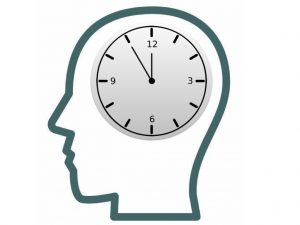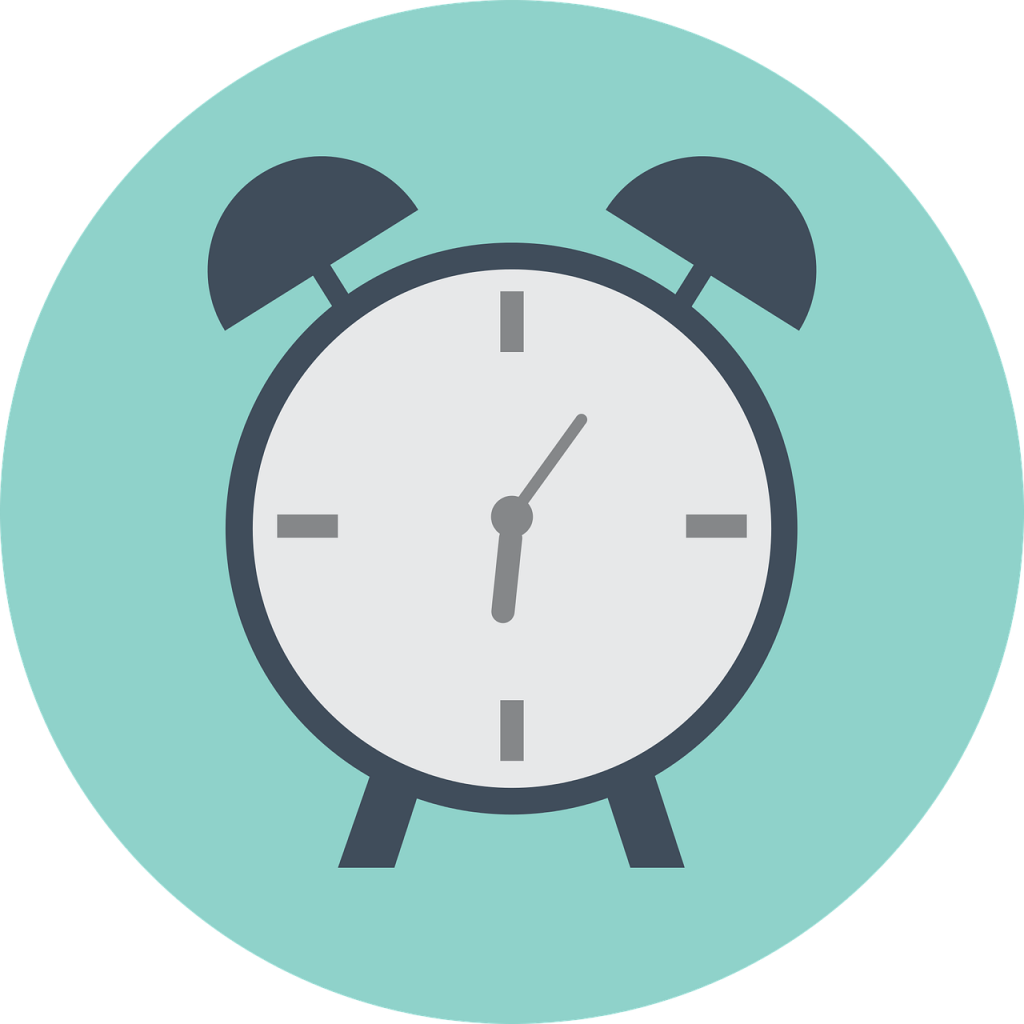Best Time to Eat for Lasting Weight Loss and Better Health
ncbi.nlm.nih.gov/pmc/articles/PMC4516560
Does it matter when you eat your food? A growing body of evidence suggests that an overnight fast, aligned with darkness and your body's nighttime response, may be a critical piece of the weight loss puzzle.
Eat According To Your Circadian Clock
You essentially have a daily clock in your brain along with clocks in the various organs of your body, which direct daily activity. Together these clocks make up your circadian rhythm, which is controlled by light and darkness. Light starts metabolic, physiological, and behavioral programs that function on a 24-hour cycle. Just as your brain needs sleep each night to rest, repair and rejuvenate, all of your other organs need downtime to reset as well.

Eating food in the morning is in sync with these programs, which begin when you wake up and continue during the day. In the morning, the insulin in your body is most effective at doing its job of moving glucose (blood sugar) out of the blood and into the cells where it can be used for energy. Insulin becomes less effective at shuttling blood sugar as the day progresses and is the least effective at night.
Eating food at night conflicts with nighttime pathways that encourage sleep rather than eating. Some of your body’s hormones are active at night, such as melatonin and growth hormone, and interfere with insulin’s activity.
If you eat ice cream at night, for instance, melatonin actually blocks some of the action of your insulin so that sugar from the ice cream stays in your blood for a longer period of time. Higher blood sugar levels mean more insulin is produced to do the job, which tends to put you in fat producing mode.
Eat your food earlier in the day when your body handles food the best rather than in the evening when your nighttime hormones kick into gear to help you sleep!
Weight Loss: Timing Versus Calories

There is research to demonstrate that calories eaten later in the day promote weight gain. Harvard professor Dr. Scheer reported in the International Journal of Obesity that dieters who ate their main meal before 3:00 p.m. lost significantly more weight than those who ate later in the day. This study showed that if you eat at least two-thirds of your calories before dinner, you’ll consume fewer calories over the whole day.
The timing of eating appears to be more important than overall total calories. In another study published in the same journal, two groups ate the same number of calories. Overweight women who ate a big breakfast (seven hundred calories) and a light dinner (two hundred calories) lost more than twice as much weight as did women who ate two-hundred- calorie breakfasts and seven-hundred-calorie dinners.
Not only do night owls tend to consume more calories, but they also may fail to burn as many calories as those who go to sleep earlier.
Burn More Fat While You Sleep

Your body readily uses carbohydrates for fuel. The sooner in the evening that they use up those carbs for energy, the sooner your body starts burning body fat while you're sleeping.
There is evidence that eating later in the evening increases body fat storage during sleep, regardless of exercise or food choices. A recent study backs up this growing association between late-night eating and higher body fat in humans. Three types of technology were used in this unique study to record participants' sleep, physical activity, and eating patterns. Eating later in the evening was associated with greater body fat stores.
When you time most of your eating to occur earlier in the day, you stand a better chance of losing fat weight instead of gaining it.
An Argument for Breakfast
Break your overnight fast! Skipping breakfast may seem like a good way to work in a longer fast, but morning is when your body metabolizes carbohydrates most effectively. Instead, stop consuming food early in the evening when your body is more insulin resistant.
Intermittent fasting has been a hot topic lately. Early time-restricted feeding (eTRF) or prolonged nightly fasting, is a form of intermittent fasting that involves eating early in the day and ending your eating early in the evening to align with your circadian rhythm. Most of the evidence in humans indicates that eating the majority of your food earlier in the day is better for your health.
Intermittent fasting carried out later in the day is in opposition to your circadian rhythm. Your rhythm is not only set by your exposure to bright light throughout the day, but also by the food you ingest. Eating late in the evening sends conflicting signals to your body. Fasting through breakfast and eating late into the day and evening, may be problematic, especially in terms of insulin sensitivity and inflammation.
A bigger breakfast appears to decrease hunger levels throughout the day. Breakfast which includes protein that you eat — not drink — tends to help control nighttime eating by suppressing evening food craving. So eating a more substantial high-protein breakfast enables you to eat less at night in line with your circadian clock.
In studies, overweight adults lost more weight when they ate a large breakfast, a modest lunch, and a small dinner. Skipping breakfast can also increase your risk of disease. Chronic diseases such as heart disease and type 2 diabetes are of particular concern.
If you want to extend your fast, begin fasting earlier in the evening rather than skipping or delaying breakfast.
Benefits Beyond Weight Loss
Overnight fasting, followed by breakfast, is also associated with improved blood sugar (glucose) control. But what about cancer risk? One particular study that followed more than 3,000 breast cancer survivors who underwent a nightly fast of more than 13 hours showed lower cancer reoccurrence, better glycemic control, and even improved sleep.
Blood pressure may also be improved by following early time-restricted feeding (eTRF). Both blood pressure and oxidative stress were found to decrease in a tightly controlled, cross over study with prediabetic men. This research demonstrated that intermittent fasting's beneficial effects are not due solely to weight loss and that eTRF may improve some aspects of cardiometabolic health.
Ending calorie consumption after 7 or 8 PM, and even earlier when possible, is a pattern you may want to consider adopting, regardless of your need for weight loss. Your health and sleep may improve.
Breakfast is the New Dinner
Work with your body, not against it. Eat food during the day to match your circadian rhythm. Start your morning off with a health-promoting, high protein breakfast to be more satisfied and to eat less in the evening. Don’t be tempted to skip or delay breakfast just to lengthen your fast. Daytime is when you need fuel to be the most productive and active. Nighttime tends to be more sedentary, with less need for food for energy.
While eating earlier in the day appears to be better for your metabolic health, that does not necessarily mean that you should skip dinner. Eat the majority of your food during the day combined with a relatively light dinner. Overnight fasting while eating whole foods instead of processed foods can help you to eat less in the evening as well as help you to lose weight more effectively.
So yes, it does matter when you eat and drink! You metabolize the carbohydrates in your food far better in the morning soon after you wake up compared to at night when your sleep hormones kick into gear. Eating breakfast like a king, lunch like a prince, and dinner like a pauper is good advice after all!

Judes Scharman Draughon, MS, RDN, LD is a corporate wellness dietitian nutritionist and author of 12 Fixes to healthy: A Wellness Plan for Life. She has narrowed down the scientific research to the 12 most significant "Fixes" you can do to make the biggest impact on your health, weight, and brain function. Front-load your eating is one of the 12 "fixes" in this 12-Fix Wellness Plan.
Judes inspires many with her high-energy nutrition presentations, workshops, and seminars. She resides in Durham, NC. If you are interested in having her speak with your organization or company, contact her at [email protected].
Additional References:
Tello, Monique. "Intermittent Fasting: Surprising Update." Harvard Health Blog. June 26, 2018. Accessed April 10, 2019. https://www.health.harvard.edu/blog/intermittent-fasting-surprising-update-2018062914156.
FNCE Session 2017, Washington D.C., presented by Dorthy Sears Ph.D. “The Evidence: Intermittent Fasting Effects on Cardiometabolic Disease and Cancer”
"Could Intermittent Fasting Be The Answer to Reducing Breast Cancer Recurrence Risk?" Dam. Mad. About Breast Cancer. October 11, 2018. Accessed April 11, 2019. (This is essentially a review (by Dietitian, Cathy Leman) of the 2017 FNCE Session presented by researcher Dr. Dorthy Sears I attended and cited above.)
Boschert, Sherry. "Skipping Breakfast Triggers Acute Insulin Resistance." MDedge ObGyn. January 18, 2019. Accessed April 11, 2019. https://www.mdedge.com/obgyn/article/59222/diabetes/skipping-breakfast-triggers-acute-insulin-resistance.
